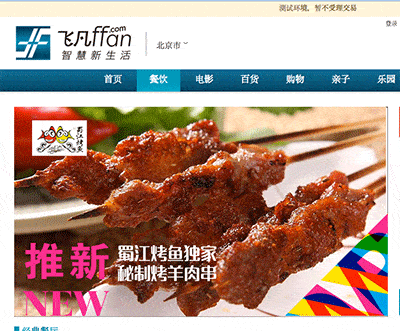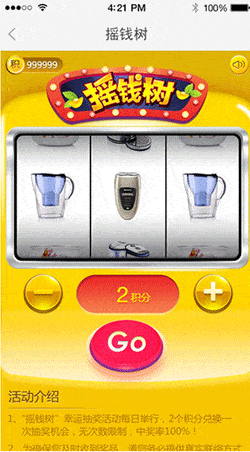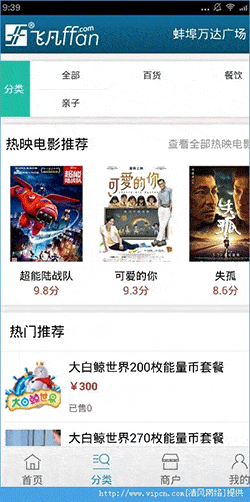
All signs point to Ffan.com, Wanda’s new O2O partnership with Tencent and Baidu
The head of one of the world’s biggest mall developers boldly stepped into the online world this month when Wang Jianlin of China’s Dalian Wanda Group began testing out his company’s new online-to-offline (O2O) retail platform.
The service, driven by the website Ffan.com (or Feifan Dianshang) and companion mobile apps for iOS and Android, aims to help Wanda expand the reach of the company’s chain of malls and department stores into cyberspace.
The online shopping platform is the product of a $814 million partnership with online giants Tencent and Baidu that was announced in August last year as three of China’s richest men look for a way to take on ecommerce titan Jack Ma.
Now that Wanda is cashed up from its $3.7 billion IPO, and finds its traditional businesses under increasing competitive pressure, the Wanda/Tencent/Baidu alliance is betting that linking an online platform to the mall developers more than 100 Wanda Plazas across China will help them gain traction with the country’s consumers.
Order Online, Pick Up at Your Neighborhood Wanda Plaza

Dining figures prominently on the Ffan website
According to a statement from Wanda, online shoppers will be able to order goods on Ffan and then pick them up at any of the company’s more than 90 department stores nationwide.
Right now the service is still in trial mode, and later the three companies plan to expand the platform to allow other stores and brands to market goods for pick-up at their physical locations.
The mobile version of Ffan is aimed at improving the mall experience for consumers by helping them navigate the many stores in the complex, access consumer review and pay online.
The company’s mobile app will also allow users to book tables at restaurants in Wanda more than 100 malls and then be notified when their table is ready.
No Delivery

The loyalty program uses points to coax users into further exploring the mall
One key service that Ffan won’t offer to China’s online shopping addicts is delivery, and Wanda sees this as both a way to give consumers what they really want and drive more traffic to the company’s shopping centres.
“Consumers like to shop in the bricks-and-mortar stores. The total visits of our shopping malls increased 33 percent to 163 million in 2014,” Wang Jianlin asserted.
Another way that the new O2O alliance hopes to lure shoppers to the Ffan platform is through a loyalty program that offers points for making checking in at physical locations, writing product and service reviews or making purchases. Wanda hopes to attract enough loyal followers to enroll 100 million members in the new scheme before the end of this year.
Looking for Online Alternatives
For Wanda, the online initiative can be seen at least partially as defensive as China’s online commerce sector has become the fastest growing category of retail sales and mobile commerce grows at double-digit rates

Movies are another major component of Ffan’s offerings.
According to China’s Ministry of Commerce the country’s online retail sales grew more than 41 percent from 2012 to 2013 (the most recent annual statistics the ministry has released), tripling the growth rate of the retail sector overall to reach RMB 1.85 trillion.
Wanda’s fleet of department stores has felt the most pressure from the growth of ecommerce, with the company announcing in January that it plans to close or restructure 30 of its locations due to disappointing sales.
Perhaps with this in mind Wanda’s first acquisition following its December IPO was online payment platform 99bill.com, which it acquired before the end of the year for RMB 2 billion ($322 million). Users of Ffan will be able to pay for the purchases via 99bill.
At the time that their O2O partnership was announced last year Wanda, Tencent and Baidu predicted that they would jointly invest RMB 20 billion ($3.22 billion) into the initiative over the next five years.
Leave a Reply